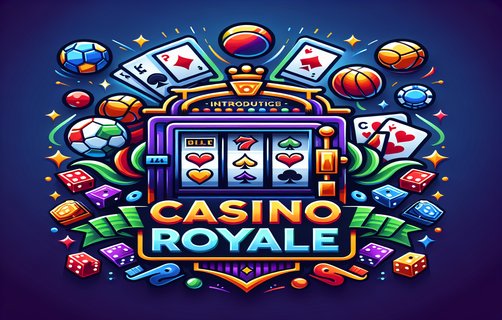Mastering Referral Programs in Online Gaming: A Designer's Perspective

In the evolving world of online gaming and gambling, referral programs have emerged as vital tools for casinos and gaming platforms to attract new players while rewarding existing ones. This analysis utilizes design thinking principles to explore critical components of effective referral programs, including win multipliers, responsible gaming laws, real-time betting, and various player mindsets.
Understanding Win Multipliers
Win multipliers are incentives that can exponentially increase a player's earnings, making them a critical feature in referral programs. By implementing a system where players receive multipliers for referring new users, casinos can create a competitive and engaging environment. For example, if a player refers a friend, both the referrer and the new player could see a 50% win multiplier on their next game or bet. Designing this function requires thoughtful consideration of the rewards structure to ensure it remains appealing without becoming exploitative. The challenge lies in striking a balance that encourages players to promote the platform while maintaining the integrity of the game.
Adhering to Responsible Gaming Laws
Incorporating responsible gaming practices is paramount in the design of referral programs. Regulations vary significantly across jurisdictions, and adhering to these laws is not only a legal requirement but also builds trust with the player base. Casinos must ensure that their referral incentives do not encourage excessive gambling behavior. For instance, the referral messages sent to clients must include disclaimers about responsible gaming. Designers should focus on creating an intuitive interface where players can easily access resources for responsible gaming, cementing their commitment to player safety.
Leveraging Real-Time Betting

As technology advances, real-time betting features have become increasingly popular, allowing players to place bets during live events. Referral programs should integrate seamlessly with this functionality. Players who refer new users during a live betting event could earn additional rewards or cash bonuses, fostering real-time engagement. Designers must ensure that the referral process remains user-friendly, even under the fast-paced conditions of live betting. This involves streamlining referral link sharing and tracking within the game interface, so players can engage with minimal friction.
Cultivating a Winning Mindset
The psychology of winning plays a significant role in online gaming. A well-structured referral program can enhance this mindset by emphasizing community and shared success. For example, when players see their friends winning due to their referrals, their belief in the game's fairness and potential for profit strengthens. From a design perspective, showing statistics on how much users have earned through referrals can promote a sense of achievement. This transparency builds a stronger community as players feel they are part of each other's journeys.
Recognizing Hot and Cold Streaks
Every player experiences hot and cold streaks, which can influence their engagement level. Successful referral programs should account for these psychological phases. For instance, if a player is on a cold streak, they might be less motivated to refer others. Designers can address this by offering tailored incentives that react to a player’s performance, perhaps giving additional multipliers or bonus bets when a player’s streak is not ideal. This approach keeps players engaged and encourages them not to give up on their referral efforts.
Multi-Table Tournaments as a Referral Tool
Multi-table tournaments (MTTs) provide a perfect platform for referral programs to thrive. The competitive nature of MTTs encourages players to bring their friends for a chance to win larger prizes and create a social gaming experience. Referral bonuses could be even greater in MTTs, rewarding players who invite their friends to join the tournament. It’s essential to integrate an easy referral system within tournament platforms, offering players options to share links via social media or messaging apps quickly.
Integrating Neteller Casino
Many players use e-wallets like Neteller for deposits and withdrawals, and incorporating such payment methods into referral programs enhances user experience. Referral bonuses should be paid out directly to Neteller accounts whenever possible, making it easier for users to redeem rewards immediately. This consideration reflects a user-centered design approach, as it smoothens the reward process and increases satisfaction levels among participants.
In summary, referral programs are a rich ground for designers to explore various elements of player engagement and experience. By considering win multipliers, maintaining compliance with gaming laws, emphasizing real-time interactions, addressing psychological factors such as winning mindsets and streaks, and leveraging tournament dynamics, casino operators can create compelling environments that not only attract new players but also foster a vibrant, engaged community.
